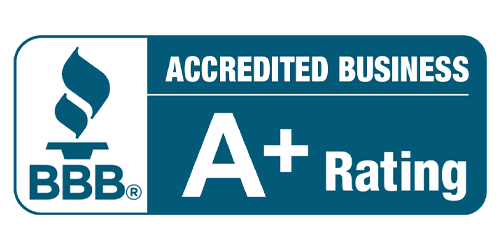In the world of financial management, bookkeeping is the foundation upon which every successful business stands. It’s the process of tracking and recording financial transactions, ensuring that everything adds up, and providing a clear snapshot of your company’s financial health. But when it comes to bookkeeping, one crucial question often arises: should you handle it yourself as a DIY project or enlist the services of a professional? In this blog post, we’ll explore the pros and cons of both approaches to help you make an informed decision that’s right for your unique situation.
The DIY Approach
Pros of DIY Bookkeeping
1. Cost Savings
One of the most appealing aspects of DIY bookkeeping is the potential cost savings. When you do it yourself, you won’t be paying for professional services, which can be particularly attractive for small businesses or startups with limited budgets.
2. Control and Accessibility
DIY bookkeeping gives you complete control over your financial records. You have instant access to your financial data, and you can update it whenever you need to without relying on a third party.
3. Learning Opportunity
Managing your books can be an excellent opportunity to learn more about your business’s financial intricacies. It can help you gain a deeper understanding of your company’s financial health and performance.
4. Flexibility
You can schedule your bookkeeping tasks at your convenience. This flexibility can be particularly beneficial for business owners who have irregular working hours or those who prefer to manage their financial records during off-peak times.
Cons of DIY Bookkeeping
1. Time-Consuming
Bookkeeping can be incredibly time-consuming, especially for those who are not well-versed in financial matters. The time spent on this task could be better utilized in other areas of your business.
2. Potential for Errors
If you lack experience or expertise in bookkeeping, there’s a higher risk of making errors that could have significant financial implications. These mistakes can lead to fines, audits, and financial setbacks.
3. Compliance and Regulations
Keeping up with ever-changing tax laws, financial regulations, and compliance requirements can be a daunting task for those without the knowledge and expertise. Non-compliance can lead to legal issues and penalties.
4. Limited Insight
DIY bookkeeping might offer a basic overview of your financial situation, but it’s unlikely to provide you with the in-depth insights and analysis that a professional can offer. You might miss out on valuable financial strategies and opportunities.
The Professional Approach
Pros of Professional Bookkeeping Services
1. Expertise and Experience
Professionals like Cristian Borcan, CPA, bring years of experience and expertise to the table. They are well-versed in tax laws, financial regulations, and best practices, ensuring accurate and compliant bookkeeping.
2. Time Savings
By outsourcing bookkeeping to a professional, you can free up your time to focus on core business activities and strategic planning, improving your company’s overall efficiency.
3. Reduced Error Risk
With a trained eye overseeing your financial records, the risk of errors decreases significantly. This can save you from costly mistakes and potential audits.
4. Financial Strategy
Professionals can do more than just record transactions. They can provide valuable insights and financial strategies to help your business grow, save money, and plan for the future.
Cons of Professional Bookkeeping Services
1. Cost
Hiring a professional bookkeeper or CPA does come with a cost. However, when you consider the time saved, error reduction, and financial benefits, this cost can often be justified.
2. Less Control
While professionals provide a high level of expertise, you might have slightly less control over your financial records compared to a DIY approach. However, most professionals will still provide you with regular updates and access to your data.
So, Which Approach Is Right for You?
The decision between DIY bookkeeping and professional services ultimately depends on your business needs, your level of expertise, and your financial resources. Here are some key considerations to help you make the right choice:
Choose DIY If:
You’re on a tight budget:
If you’re just starting, or your business is in its early stages, managing your bookkeeping can be a cost-effective choice.
You have some financial knowledge:
If you have a basic understanding of bookkeeping and accounting principles, DIY can be a good option.
You have the time:
If you have the time to dedicate to bookkeeping tasks and are willing to continuously educate yourself on financial regulations, you can consider the DIY approach.
Choose Professional Services If:
You lack financial expertise:
If you’re not well-versed in financial matters, hiring a professional is crucial to avoid costly errors and ensure compliance.
You value your time:
If your time is better spent on growing your business, a professional bookkeeper can save you countless hours and headaches.
You want strategic financial guidance:
If you’re looking for more than just data entry and want valuable financial advice and strategies, a professional is the way to go.
Your business has grown:
As your business grows, so do its financial complexities. Professional bookkeeping can help you navigate these complexities effectively.
In conclusion, while DIY bookkeeping has its merits, it’s crucial to recognize its limitations. For most businesses, especially as they grow, investing in professional bookkeeping services is a wise choice. A professional like Cristian Borcan, CPA, can provide the expertise, reliability, and strategic guidance that can save you money and help your business thrive. Don’t let bookkeeping become a stumbling block; instead, use it as a stepping stone toward your business’s financial success.


Comments are closed